|
Douglas Silas,
Specialist SEN Solicitor 10th May 2021
You can’t be good at everything...
Try as we might, we can never be good at everything we put our hand to. There will always be people who are better or worse than us at things and, so too, there will always be things that we are better or worse at than others. We just have to accept this fact, as to do otherwise will just infuriate us, since we will constantly be trying our best to achieve something all the time, but will then find, to our disappointment (and sometimes anger or despair), that somebody has got there before or after us. You will therefore always drive yourself crazy if you think like this - there is no clearer path to madness. So, through a process in life of 'hit and miss' we gradually need to work out what our strengths and weaknesses are and then play to our strengths and minimise our weaknesses. This doesn't mean that we should not still enjoy doing the things we may not be so good at, especially if they bring us pleasure, but we should recognise that we will probably not excel at them and then concentrate our time on things that we can do better. And the irony of all of this is often that, when other people tell us we cannot do something just because they may have seen us try and fail, perhaps a few times, it is sometimes the moment when we then become more determined to prove them wrong and usually ultimately succeed at the things they said we could never do! And a further irony is that we can then use the principles that we learn through these trials and tribulations of achieving this, to be successful at something else!! Yet, despite this, the initial principle usually remains the same - you cannot be good at everything and it is easier if we eventually accept this.
In this week's SEN Update, you will find sections entitled:
I know how busy everyone always is, so please feel free just to read the sections that are of interest to you or read everything; the choice is always yours.
Don’t forget, to ensure that you never miss one, you can get my SEN Updates personally by completing your email details above,
or by following me on one of the social media platforms I use (i.e. Twitter/Facebook). You can also share this SEN Update with others (please only do so if it may be relevant to them) by using one of the icons, usually to the right or at the bottom of this page.
MENTAL HEALTH AWARENESS WEEK
Thankfully, there was a fair bit of information I saw that I thought I would bring to people's attention this week. In fact, ironically, there was more this week than I could highlight in my first two sections, so I have put more links in the third section under 'Latest News Online'. In this first section, I want to highlight mental health again. I saw that it is 'Mental Health Awareness' this week. We are all very aware of the impact the pandemic this past year or so has had on the mental health of our children and young people. I then realised that, after looking, I had overlooked noting that 'Children's Mental Health Awareness' week was at the beginning of February! However, after some further research, I came across the website for the 'Mental Health Foundation' and there found a number of useful bits of information about 'Mental Health Awareness Week 2021', which the year's theme is 'Connect with Nature'. I found my way to a webpage where you can download a 'Connect with Nature School Pack', which says: "Connecting with nature in a great way you can help young people improve and maintain their mental health and wellbeing. Our ‘Mental Health in the Pandemic’ study found that going for walks outside was one of our top coping strategies and 45% of us said that being in green spaces was vital for looking after our mental health. The Mental Health Foundation’s Peer Education Project is a Secondary School-based project that gives older pupils the tools to deliver mental health lessons to younger pupils. The project has worked with pupils and staff from participating Secondary Schools to create the Connect with Nature School Pack, which is available for all schools across the UK. This school pack will provide the materials and resources needed to support pupils to connect with nature in a meaningful way. The pack is designed to be used in secondary schools, but it has lots of useful information for primary schools too. It is available in English and Welsh. The pack includes:
Hope this helps.
AREA SEND INSPECTIONS AND OUTCOMES
This week Ofsted also published their official statistics on 'Main findings: area SEND inspections and outcomes in England as at 31 March 2021'. Obviously, you can click on the link if you want to read everything for yourself (there are a number of charts), but they also provide a helpful summary of things, which says: "This is the main findings report for the area special educational needs and disabilities (SEND) inspections and outcomes in England 2021 release. The following are also available:
This release contains:
lmpact of COVID-19 (coronavirus) On 17 March 2020, all routine Ofsted inspections were suspended due to the COVID-19 pandemic. As a result, we suspended area SEND inspections and re-visits to local areas that had been required to produce a written statement of action (WSoA). We have included all reports published by 31 March 2021 in this release. Between October 2020 and March 2021, Ofsted and the Care Quality Commission (CQC) carried out a series of interim area SEND visits, visiting 10 local areas across the country. Participating local areas will remain anonymous, but learning has been shared in several thematic national reports. Main findings Since 2016, Ofsted and the CQC have carried out joint inspections of SEND arrangements in 116 of the 151 local areas across England. Just over half (59 out of 116) of the areas inspected have been required to produce and submit a WSoA to Her Majesty’s Chief Inspector (HMCI). This is an indication of significant weaknesses in the local areas’ SEND arrangements. The proportion of local areas required to produce a WSoA varies across the country. At a regional level, the proportion of local areas with a WSoA ranges from 1 in 4 in London, to more than 4 out of 5 in the East of England. Inspection outcomes have not varied much in the last 3 years. Relatively similar proportions of local areas have been required to produce a WSoA each year, from just over half to under two thirds. Twenty-one local areas have received a re-visit. Inspectors determined that 9 local areas were making sufficient progress in addressing all the significant weaknesses identified during their initial inspection."
LATEST NEWS ONLINE
And here are the news articles that I found of interest: Call for masks to remain compulsory in England’s schools Popularity at school linked to age position in class – study Secondary school pupils no longer advised to wear masks in class, Williamson confirms Autism more common in children in England than previously thought – study Pupils should keep wearing masks into the summer, Sage told ministers Covid: Poor pupils fall further behind in maths Infection rates dropping in schools: What does the latest data show
Again, aside from clicking on the relevant links for more information, I would also remind you of the very useful resources and information provided on the following websites:
- IPSEA - Council for Disabled Children - Contact - Scope - Special Needs Jungle I would also highlight again the fact that you can now get a digital copy of the magazine: Autism Eye which is very helpful to any parents or professionals involved with children/young people with Autism. Keep safe until next week. With best wishes Douglas
How useful do you find my SEN Updates?
Created with Quiz Maker
Douglas Silas,
Specialist SEN Solicitor 1st March 2021
Too many people seem to not complete one thing before starting another...
Unfortunately, we have become overly fixated on the idea of multitasking, especially as smartphones/the internet have taken over more and more of our lives and constantly distract us. Once, we would start something and then finish it, before moving on to doing something else. However, too often I see people now (including myself) trying to start something else, before first completing the thing that we are doing. It doesn't take a genius to also work out that if you go on like this, you just end up with lots of things increasingly started but not yet completed. We are very good though at rationalising everything and convincing ourselves and others that we will be able to finish something off when we have more time - but the trouble is that we never then seem to be able to find more time! It's very dangerous also when we start to think like this, as the logical conclusion is that we just start amassing more and more jobs to finish, which then weigh us further and further down emotionally. We then feel more and more guilty about not doing them. This is especially the case if the things we need to finish off can be seen and then are staring us in the face to make us feel guilty. As people like to say: "out of sight, out of mind", but it really should be: "in sight, in mind!". So, it's really simple - just try and complete one thing before starting something else - you may find that doing things this way will then start to make life a bit easier for you.
In this week's SEN Update you will find information about:
I know how busy everyone always is, so please feel free just to read the sections that are of interest to you or read everything; the choice is always yours.
Don’t forget, to ensure that you never miss one, you can get my SEN Updates personally by completing your email details above,
or by following me on one of the social media platforms I use (i.e. Twitter/Facebook). You can also share this SEN Update with others (please only do so if it may be relevant to them) by using one of the icons, usually to the right or at the bottom of this page.
I'm starting to expect this now most weeks and have also noticed that it now seems to be getting later on a Friday (I hope this doesn't carry on like this, as most people will have already switched off for the weekend and may not see this information till the start of the next week).
At 6.45pm this time (I can't even call that late on Friday afternoon, as it is more like Friday evening), I received the latest email bulletin from the Department for Education's (DfE's) SEND Division, this week entitled: "***SEND Newsflash*** Announcements & publications during w/c 22 February ", which said: "Dear colleagues, It has been a busy week, and there is a lot to take in! We thought it would be helpful to draw together the various announcements and publications into one bumper newsflash for ease of reference:
- Actions for early years and childcare providers during the coronavirus (COVID-19) outbreak - Guidance for higher education providers - Coronavirus (COVID-19) contingency framework for education and childcare settings
- we published an Evidence summary: COVID-19 - children, young people and education settings - the Secretary of State wrote to education leaders setting out in more detail the plans to fully re-open schools. He also thanked leaders for their continued work and support during the latest lockdown. Leaders of special, special post-16 providers, and alternative provision schools were thanked in particular, for remaining fully open to children and young people with SEND.
- awarding qualifications in summer 2021 - making alternative arrangements for the award of VTQs and other general qualifications in 2021 Testing in specialist settings We have worked hard to give specialist settings additional flexibility on testing as attendance increases. For specialist settings this means:
A step-by-step guide to testing and frequently asked questions are available on the schools google drive. We will be publishing updated guidance on testing in specialist settings in the next week, the guidance will be published at https://www.gov.uk/government/publications/guidance-for-full-opening-special-schools-and-other-specialist-settings/mass-asymptomatic-testing-in-specialist-settings Many thanks Special Educational Needs and Disability Division" There is more, so I have split this into two parts this week...
...the email attached two things.
The first was entitled: "Message to education leaders from the Secretary of State for Education, Gavin Williamson" and said: "I would like to thank you for the huge effort that you have put in to provide remote and on-site education for pupils and students during these national restrictions, andindeed all of your hard work throughout the pandemic. I would particularly pay tribute to those leaders of special and alternative provision schools, and special post-16 providers, which have remained fully open to vulnerable children and young people throughout the latest lockdown. I recognise that this has been a verychallenging time. I am continually impressed with, and immensely grateful for, the tremendous work in ensuring that schools and colleges have been able to ensure children and young people continue to receive the best education possible. I am writing to set out in greater detail the easing of restrictions on face-to-faceteaching announced today. When the Prime Minister announced this lockdown, he was clear he would review the situation in mid-February and that the outcome of this review would be dependent upon the most vulnerable people being offered the first dose of the vaccine by 15 February, meaning they should have developed some immunity from the virus by about three weeks later, that is by 8 March. I am pleased to say that, thanks to the efforts of the NHS, volunteers and scientists, the Government has achieved this target and, following an in-depth analysis of the virus prevalence data, and the data on NHS capacity, both suggestthat infection rates have fallen across all ages, including in children and young people. Today, the Prime Minister set out the next phase of the Government’s response to coronavirus (COVID-19), including where restrictions on attendance at education settings can be lifted. The decision to ease restrictions is made on the balance of risk to public health and educational considerations. Return All schools, colleges and further education settings should allow full attendance from 8 March. Wraparound childcare, including childminders should also allow attendance for eligible children. School attendance will be mandatory for all pupils, with secondary schools and colleges able to phase return over the week of 8 March to allow students to be offered testing on return. The usual rules and duties around school attendance are in place from 8 March (including mandatory attendance). All schools should communicate expectations about regular attendance to pupils and parents. Schools should identify pupils at risk of disengagement and develop plans to re-engage them. Early years settings will continue to be open to all children, as they havethroughout the period of national restrictions. In further education settings, we expect that every 16 to 19 student (or 19 to 25 with an EHCP) will undertake the majority of their planned hours on site. For adults, as is best practice, further education providers should determine the appropriate balance of on-site and remote education and training, based on the type ofprogramme and the student’s ability to engage with the programme remotely. Higher education providers should recommence in-person teaching and learning from 8 March for students on practical or practice-based (including creative arts)courses who need access to specialist equipment and facilities. The Government will review, by the end of the Easter holidays, the options for timing of the return of remaining students. This review will take account of the latest data and will be a key part of the wider roadmap steps. Students and providers will be given a week’s notice ahead of anyfurther return. Based on the recent ONS data, the risks to education, childcare and HE staff aresimilar to those for most other occupations. Although the public health picture is improving, it remains crucial that steps are taken to reduce and mitigate any risks within education and childcare settings. DfE has worked closely with PHE to develop and refresh the system of controls to reduce the risk of transmission in education and childcare settings, based onscientific rationale. Rapid testingSince January, education leaders across schools, colleges and universities have been involved in a fantastic national effort to test their staff and students. Over 4 million tests have already been completed under your collective leadership and I would like to thank you for all the work you have done to set up the programme so far. Rapid testing will continue to remain a vital part of the Government’s plan to supress this virus, in education and childcare settings and across society. This sort of testing means that asymptomatic people who might otherwise continue to attend educational settings are identified and self-isolate. Twice-weekly asymptomatic testing is already available for secondary school, most college, primary school, special school, special post-16, school-based nursery and maintained nursery school workforce, including support staff such as teaching assistants and those supporting with wraparound childcare. Secondary schools and colleges have also been able to offer testing on return for their students, and we are now asking those leaders to put this in place for all students across the week of the 8 March as they return. Today, we have also announced the further expansion of this asymptomatic testing programme to include offering regular twice weekly testing of secondary school andcollege students at home, home based testing for secondary staff. Home testing willalso be available for Independent Training Providers and Adult and Community Learning Providers by the end of March. Rapid testing is already in place for those arriving or staying at university. We ask HE providers to offer two tests to all students eligible to attend their university or HE institution upon their return, and twice weekly asymptomatic testing to all students eligible to attend on-site, as well as providing testing for staff. All staff at private, voluntary and independent nurseries will have access to tests to use twice weekly at home, building on the testing already available to maintained nursery schools and school-based nurseries. Childminders can continue to accesscommunity testing, and the Department continues to work with colleagues across Government to review the testing approach available for childminders. Safety measures The return to on-site provision for all education, childcare and children’s social care settings will be supported by a range of actions designed to minimise the spread of coronavirus (COVID- 19). I know how hard you have all worked to implement thesemeasures and this continues to be vital. We have worked closely with PHE to develop and refresh the system of controls to reduce the risk of transmission in education and childcare settings, based on scientific rationale. The system of controls supports you to assess risk and implement measures to mitigate risk, including ventilating occupied spaces, introducing enhanced cleaning and retaining bubbles of students. We ask pupils, students and staff to continue to do everything they can to adhere to these measures, because it is vital that they are implemented well and consistently. In addition to the system of controls, where pupils in year 7 and above are educated, we recommend that face coverings should be worn by staff and pupils where social distancing cannot easily be maintained when moving around the premises outside of classrooms or teaching spaces, such as in corridors andcommunal areas. In the same settings for a limited period, we recommend the use of face coverings in classrooms and other teaching spaces, unless wearing a face covering would impact on the ability to take part in exercise or strenuous activity, for example in PE lessons, or for those who are exempt from wearing a face covering as set out in Government guidance. In primary schools and early years settings, face coverings should be worn by staff and adult visitors where social distancing between adults is not possible. Children in primary schools do not need to wear a face covering. Education recovery and qualifications I know you are completely aware that missing face-to-face education has severeimpacts for children and young people, with clear evidence that time out of face-to-face education is detrimental for cognitive and academic development, learning,health and wellbeing. That’s why the Government has been clear that restricting attendance in education settings was a last resort, and why education is being prioritised as we begin to ease restrictions. We will be setting out further measures for immediate support to children, early years settings, schools, colleges and local authorities later this week. I and Ofqual will also be setting out very soon further details of the alternative arrangements to exams. This follows the consultation which received over 100,000 responses, including from so many of you and your students. I am very pleased that we are able to return children and young people across England to their classrooms and colleges, to allow them to spend time with their friends and teachers and get back into the rhythms of the school or college year. Iwould like to thank you again for all the hard work you have done and continue to doto ensure that children and young people can return to face-to-face learning as smoothly as possible. The Rt Hon Gavin Williamson CBE MP Secretary of State for Education" The second attachment was entitled: 'Briefing Note for SEND stakeholders – Covid Recovery' and, in the interest of trying to keep this week's update shorter (it is already quite long as it is), although I'll include it here, please skip over it if it is of no interest to you...
The 'Briefing' said as follows:
"Briefing Note for SEND stakeholders – Covid Recovery As you will have seen, on 24 February, the government announced an additional £700m for a range of additional measures to give early years settings, schools, providers of 16-19 education – including specialist settings - and local authorities the tools they need to target support for all students. This builds on the £1 billion catch-up package announced in June 2020, and forms part of the wider response to help pupils make up their lost learning. Details of the package are set-out below. Recovery Premium A new one-off £302 million Recovery Premium for state primary and secondary schools will build on the Pupil Premium, to further support pupils who need it most. Schools have flexibility in how they choose to spend the premium. Primary schools will receive around £6,000 additional funding, and secondaries around £22,000 additional funding – bolstering summer provision for students. This funding can be used to lay onadditional clubs or activities or for other evidence-based approaches for supporting the mostdisadvantaged pupils, including those with special educational needs and disability (SEND), fromSeptember. The one-off Recovery Premium will be allocated to schools based on the same methodology as the pupil premium, including an additional weighting to specialist settings, recognising the significantly higher per pupil costs they face. Pupil premium eligible pupils in mainstream schools will attract £145 to their school and pupil premium eligible pupils in special schools, AP, hospital schools and special units in mainstream schools will attract £290 over the 2021/22 academic year. The Recovery Premium will be paid as a grant to all state-funded primary, secondary and special schoolsin England over the 2021/22 academic year. The timing of the payments will be confirmed shortly. Tutoring The announcement also confirmed £200 million (from the £300 million to expand successful tutoringprogrammes, announced by the Prime Minister in January), which will fund: An expansion of the National Tutoring Programme for primary and secondary schools, to allow more pupils to benefit from the power of regular tutoring which has been shown to boost catch-up learning by as much as 3-5 months. This will increase access to high-quality tuition for disadvantaged pupils, helping to accelerate their academic progress and tackling the attainmentgap between them and their peers. As with the current programme, we are committed to being as inclusive as possible by supplying suitable provision for supporting SEND pupils within all schools, including Special Schools. An extension of the 16-19 Tuition Fund for a further year to support more students in English, maths, and other vocational and academic subjects. Providers are asked to have regard to the needs of students with SEND when prioritising students that would benefit most for small group tuition. In line with usual 16-19 funding, children with SEND aged 19-24 who have an education, health and care plan will be eligible for the Tuition Fund where they meet the criteria. Adults are able to pause their learning where it has been significantly impacted by coronavirus and, in agreement with their provider, pick up from where they left off at a later date. Support for early language development in the early years, supporting a critical stage of childdevelopment. Summer Schools £200 million (including the final £100 million from the Prime Minister’s announcement) will be available to all secondary schools, including specialist settings, to deliver face-to-face summer schools. Schools will be able to target provision based on pupils’ needs but the government is suggesting they may want to initially target initially incoming year 7 pupils. This is alongside wider support funded through our Holiday Activities and Food Programme across the country. A range of high-quality online resources will be available for all teachers and pupils, starting from thesummer term and throughout summer holidays, will be provided by Oak National Academy, to help givepupils the confidence they are ready for the next academic year. The funding available for the summer schools programme supports a 2-week scheme for pupils most in need. The size and shape of the summer schools will be decided by school leaders who know best what a most effective summer school will look like for their pupils. We expect that most schools will want to offer a mix of academic, enrichment and pastoral activity to appeal to pupils and deliver the range of benefits that the evidence shows summer schools can deliver. Teachers will not be forced to do anything. Schools will need to determine how best to use the fundingand staff the scheme to ensure that the extra time is used effectively: teachers are best placed to deliver high quality educational content. Guidance will be published shortly. Next Steps Sir Kevan Collins has been appointed Education Recovery Commissioner to engage with parents, teachers, and education providers to review how evidence-based interventions can be used to address the impact the pandemic has had on learning. Sir Kevan will be advising the Secretary of State and thePrime Minister on a longer-term plan."
Finally, in terms of news, here's a few news articles that I found of interest:
Covid tests and masks: School prepares for return to class Summer catch-up schools planned for pupils in England Doctors fear new child mental health crisis in UK, made worse by Covid Vulnerable children 'forgotten' in Covid vaccine rollout, say UK charities
Where can I find further information?
Again, aside from clicking on the relevant links for more information, I would also remind you of the very useful resources and information provided on the following websites: - IPSEA - Council for Disabled Children - Contact - Scope - Special Needs Jungle I would also highlight again the fact that you can now get digital copies of the magazines: SEN Magazine and Autism Eye which are both very helpful to any parents or professionals involved with children/young people with SEN. Keep safe until next week. With best wishes Douglas
P.S I understand that there are a number of educational or other useful resources now on the web, so I would be very grateful if you could let me know of any that you find that other people may find useful, so that I can direct people to it.
How useful do you find my SEN Updates?
Created with Quiz Maker
Douglas Silas,
Specialist SEN Solicitor 1st February 2021
Typical!
After the last couple of weeks, with a lot of guidance and other information being sent out by the Department for Education (DfE), which I shared with you here, as I made my way through this past week, it had seemed a bit quieter now on that front, so I therefore thought that my update this week could be a bit lighter. However, just as I was packing up from work on Friday afternoon for the weekend (I finish earlier on Fridays), I received another very detailed email sent out by the DfE, this time entitled: '**SEND NEWSFLASH** UK disability survey; details of disability and access ambassadors; schools' SEND publication requirements & update on access to work funding' (do they pick their timings deliberately?) So, rather than my telling you everything that it says here (which would then not allow me much room for anything else really), I am only going to refer to one main part of it below in my first section of this update, which I think will be useful to most people.
Don’t forget, to ensure that you never miss one, you can get my SEN Updates personally by completing your email details above,
or by following me on one of the social media platforms I use (i.e. Twitter/Facebook). You can also share this SEN Update with others (please only do so if it may be relevant to them) by using one of the icons, usually to the right or at the bottom of this page.
The main part of the DfE's email, which I thought would help most people by my repeating here, states as follows:
'Duties on and expectations of schools over publishing material online We have updated our summaries of the material that schools must or should publish online, including in relation to: · SEN Information Reports, which need to be updated at least annually · details of how a school complies with the public sector equality duty, with information which needs to be updated every year · a school’s equality objectives, which need to be updated at least once every four years · contact details of SENCos Schools will also typically wish to publish the Accessibility Plan, that they have to update at least once every three years. Information as to that Plan needs to be included in their SEN Information Report. There are no changes to the law and our guidance on publishing of the above, but in the updates of our summaries we have sought to bring together all the relevant material in one place and to set it out clearly. We invite Heads, SENCOs and governors/trustees to consider whether the above material on their websites remains up to date. The relevant links to our summaries of the requirements and expectations of schools are: - for maintained schools, https://www.gov.uk/guidance/what-maintained-schools-must-publish-online - for academies/free schools, https://www.gov.uk/guidance/what-academies-free-schools-and-colleges-should-publish-online
The other bit of Government information that I was already intending to bring you this week was from OFSTED and entitled: 'Remote education research (research and analysis)', whose introduction states:
'Since March 2020, the need for and the expectations placed on remote education have changed considerably. From the middle of March and for most of the summer term, the COVID-19 (coronavirus) pandemic led to school buildings in England being closed for most pupils. There was no requirement to provide remote education during this period, although some guidance was published. Schools were open to all pupils from September 2020 but, given the need for class and year group bubbles and self-isolating pupils, the Department for Education established a continuity directive for mandatory remote education. School buildings were again closed to most pupils in January 2021. From that point, remote education has been a requirement, so that pupils can continue with their learning. At the beginning of January, we published guidance on ‘What is working well in remote education’. As England entered a third national lockdown, that short paper was intended to provide the sector with some immediate advice and reassurance on useful remote education approaches that had been distilled from our recent research activities. Remote education matters. Until mass vaccination is achieved, local lockdowns, class and year group bubbles and individuals self-isolating are likely to remain part of daily life. This will have a continuing impact on schools’ capabilities in delivering a broad and balanced curriculum to all pupils. Schools are likely to continue to rely on remote solutions to provide coverage and mitigate against learning loss. Furthermore, evidence from our interim visits suggests that given the amount of time and resources that school leaders have placed into developing their remote solutions over the past 10 months, it is likely that schools will incorporate aspects of remote education into their teaching after the pandemic. Understanding what successful remote education is has been a priority for Ofsted during the pandemic. Education providers have of course been learning ‘on the job’, and many will now be well advanced in their own understanding. This paper sets out what we have learned through our research and visits and we hope providers find it helpful.' It's contents are set out then as follows:
Also, there were lots of thought-provoking new articles this week in the media - here's a few if you are interested:
- 'Knackered and confused.' That's just the parents - Opening schools a national priority, says government - Boris Johnson hopes schools in England will reopen from 8 March - Covid-hit pupils 'should be allowed to repeat a year' - Behind closed bedroom doors, a teenage mental health crisis is brewing - Nursery staff are being treated like cannon fodder so 'higher-value' work can go on - COVID-19: PM's letter praising families for efforts during pandemic criticised as 'kick in the teeth'
Where can I find further information?
Again, aside from clicking on the relevant links for more information, I would also remind you of the very useful resources and information provided on the following websites: - IPSEA - Council for Disabled Children - Contact - Scope - Special Needs Jungle I would also highlight again the fact that you can now get digital copies of the magazines: SEN Magazine and Autism Eye which are both very helpful to any parents or professionals involved with children/young people with SEN. Keep safe until next week. With best wishes Douglas
P.S I understand that there are a number of educational or other useful resources now on the web, so I would be very grateful if you could let me know of any that you find that other people may find useful, so that I can direct people to it.
How useful do you find my SEN Updates?
Created with Quiz Maker
by Douglas Silas, specialist SEN solicitor Here is my update for this week. This week I am setting out only part of the text of this week’s update for those of you reading this update by email, to try to make it a bit easier for people to read things and only click on links which are of interest to them. (Again, anyone receiving this update through Social Media will be reading the full update as normal after clicking on the link). I hope that this helps people again. 1. What has happened this week? It’s no surprise if you have already guessed from the title of this week’s update, what the issue was again this week in SEN news – primary schools going back, then not going back! I can do no better than quote an article from the BBC’s website early in the week entitled: “Plan dropped for all primary pupils back in school”, which said: “The plan for all primary school years in England to go back to school before the end of term is to be dropped by the government. There had been an aim for all primary pupils to spend four weeks in school before the summer break. But it is no longer thought to be feasible and instead schools will be given "flexibility" over whether or not to admit more pupils. Head teachers' leaders said it had never been a practical possibility. It comes after Health Secretary Matt Hancock conceded at Monday's Downing Street briefing that secondary schools in England may not fully reopen until September "at the earliest". Primary pupils in England in Reception, Year 1 and 6 began to return to school last week - and figures published by the Department for England have shown how many attended, based on 4 June. It shows that about three quarters of those who could have returned to school were still at home - reflecting that almost half of schools were not open for extra pupils. - 52% of primary schools opened for extra pupils - 11% of primary pupils were in school - about a quarter of those year groups who could have gone back - 659,000 children were in all schools, including children of key workers, almost 7% who would normally attend, up from 2.6% before half term Prime Minister Boris Johnson will chair a cabinet meeting later to discuss the next steps to ease lockdown restrictions, before Education Secretary Gavin Williamson delivers a statement to the House of Commons on the reopening of schools. There are separate rules for managing the threat of coronavirus in England, Wales, Scotland and Northern Ireland. Children in England began returning to primary schools in a phased process last week, with Reception, Year 1 and Year 6 pupils heading back first. Mr Williamson will give an indication later of how many more pupils in England have returned, but he is also expected to say that primary schools will no longer have to prepare for the return of all pupils, as previously proposed by the government. The "pressure" to get ready will be removed, with heads and governors being free to decide whether they can bring in more classes. Analysis Today's announcement is expected to make formal what head teachers and governors in England have been saying for some time. It's not possible to massively increase the space each class needs to meet social distancing rules, and bring everyone back. There's not enough room. While Number 10 and the education secretary pushed on with the plans, they lost the support of some groups of parents, people working in schools and teaching unions. There are the concerns that having more pupils in schools will contribute to an increase in Covid-19 infections, both among pupils and staff and in their communities, and the inconclusiveness of the scientific evidence on this. Balanced against this are also the very real fears of parents, about how on earth they are going to manage with their youngsters at home for another two or three months - minimum - let alone keep up to date with their educational needs. There are growing voices for the government to start to think more strategically and more creatively. A strategic national plan is being called for, one that realises the scale of the problem and matches the scale of the support the economy has seen. The announcement means that many children in these other year groups will not be back in school until September or even after. Care minister Helen Whately told BBC Breakfast that ministers "don't want to take risks that might increase the infection rates", but recognise that being out of school is "particularly a problem" for children from disadvantaged backgrounds and that the education gap "can widen". Children's commissioner for England Anne Longfield told the programme that the prospect of secondary school pupils not returning until beyond September was "deeply worrying". "It's a disruption we've not seen since the Second World War," she said. She added that "the education divide is broadening" and "almost a decade of catching up on that education gap may well be lost". She also called children's education to be made the number one priority in government, adding that otherwise there was a risk that "childhood is just going to be furloughed for months." Commons Education Committee chairman Robert Halfon called for a national strategic plan to get schools open as soon as possible. He also warned that with schools remaining closed the majority of pupils would lose 40% of their time in class this year. He told BBC Radio 4's Today programme: "I think we're a strange country in which we turn a blind eye to mass demonstrations all over in every city, we campaign for pubs and cafes to open and yet we say to open schools before September is too risky when all the evidence... suggests otherwise." Mr Halfon also responded to concerns raised by a teacher on BBC Radio 5 live about schools having to fund supply teachers from their own budgets. "If schools need extra funding in order to make sure their classrooms are social distancing, then government should provide that funding," he said. One mother told the Today programme that she was "unsurprised" but "incredibly disappointed" by the news. "I feel really sad for my son. I've got one son in year two and another one in reception. "My child in reception [has] gone back, albeit only four days a week, every other week. "And my older son, who is just about to turn seven, is desperate to go back, can't understand, thinks it's so unfair - which it is." But another mother, with two children aged eight and six, disagreed. "I'm actually relieved if schools don't go back until September because I think it's too soon. "They don't socially distance at that age. I don't think there's enough protective equipment available in school." Head teachers had warned several weeks ago that it was not a realistic possibility to accommodate all primary year groups at the same time, with social distancing limiting their capacity. Class sizes are now only 15 pupils or less - so if each class occupied two classrooms, school leaders argued that they would have no space for all year groups to return. "The 'ambition' to bring back all primary year groups for a month before the end of the summer term was a case of the government over-promising something that wasn't deliverable," said Geoff Barton, leader of the ASCL head teachers' union. "It isn't possible to do that while maintaining small class sizes and social bubbles," he said. Paul Whiteman, of the National Association of Head Teachers, said "we're pleased to see the government will not force the impossible" and that the plan had too many "practical barriers". Ian Robinson, chief executive of the Oak Partnership Trust, which runs primary schools and a special school in Somerset, told BBC Radio 4's Today programme the announcement shows ministers "are listening to the profession". Schools have remained open throughout the lockdown for children of key workers and vulnerable children. But last Monday primary schools began the process of inviting back another two million children across three year groups. Secondary pupils in Years 10 and 12 are to begin returning for some sessions in school from 15 June. It is thought that primary pupil numbers have been increasing as parents have become more confident - but there have also been local concerns about different regional rates of infection. Teachers' unions have warned that it is too early to return to school - and some local authorities have delayed a return in their areas. But the Department for Education has argued that children need to get back to lessons - and that safety has been "paramount" in the plans to bring back more pupils. Schools in Wales will reopen from 29 June to all age groups for limited periods during the week, while Scottish schools are to reopen at the start of the autumn term on 11 August, with some continued home-learning. Some Northern Irish pupils preparing for exams and those about to move to post-primary schools will go back in late August, with a phased return for the rest in September.” A couple of days later, the BBC’s website published another article entitled: “Summer catch-up plan for England's schools pledged”, which said: “An extended catch-up plan for England's schools is to be launched for the summer and beyond, to help pupils get back on track amid school shutdowns. The PM's spokesman said the plans would involve all pupils, not just those from poor backgrounds who are expected to fare worse during closures. It comes after the education secretary ditched plans for all primary pupils to return to school before the break. PM Boris Johnson has been accused of "flailing around" over schools. On Wednesday, Labour leader Keir Starmer called for a national recovery plan for schools, saying the current plan to get pupils back to classrooms were "lying in tatters". Mr Johnson said at Wednesday's daily briefing that the government would be doing "a huge amount of catch up for pupils over the summer". Concerns have been raised about the potential for a lost generation of learners, whose education will have been interrupted for at least six months even if schools return as now planned in September. The PM's spokesman said the aim remained to have all pupils back in school for the start of the academic year, but gave no details about how ministers intended to achieve this. School capacity is severely restricted by guidelines on social distancing and separating out existing classes into smaller groups of up to 15 pupils from much larger class sizes. When the spokesman was asked about increasing this capacity, by creating extra classrooms or using village halls for example, he said the government was "looking at exactly what might be required to get all children back". The Scottish Government, which is bringing pupils back in staggered fashion from August, has said it will be working with local councils to seek out extra community spaces and empty offices to accommodate pupils, where necessary. Liberal Democrat education spokeswoman Layla Moran has called for a register to be drawn up in local areas to map out where spaces could be brought into school use. There are few details of how the summer catch-up plans will work. A further announcement is expected next week. It is not clear whether this catch-up work would be offered in school buildings or elsewhere, or whether teachers would be asked to staff the programme. The general secretary of the National Association of Head Teachers, Paul Whiteman, said the plan was the latest in a long line of eye-catching announcements that would suffer from a lack of input from the teaching profession. He said it was not credible to think academic catch up could be achieved over the summer, and warned that the impact of enforced isolation on young people was little understood but likely to be significant. But he said support was clearly needed for pupils over the summer, and urged the government to fund a locally co-ordinated offer involving youth groups and charities. The Children's Commissioner for England, Anne Longfield, warned last week that there were just two weeks left to set such summer learning projects up. And the House of Commons Education Committee chairman, Robert Halfon, has called for a Nightingale Hospital style plan to get schools back to capacity. Meanwhile, the Welsh government has published new guidance on the measures schools should consider when reopening, including outside learning, teaching in small groups, and pupils eating at their desks. Schools in Wales will reopen to all age groups from 29 June, but only a third of pupils will be in classes at any one time. First Minister Nicola Sturgeon says Scottish schools will reopen from 11 August, but with some continued home learning. In Northern Ireland, ministers have set a target date for some pupils to go back on 17 August, with a phased return for the rest in September.” By the end of the week, another article appeared entitled: “How will secondary schools reopen safely?”, which said: “As some Year 10 and Year 12 pupils in England prepare to go back to school on Monday, secondary head teachers are having to overcome an array of challenges. Plans shared with the BBC suggest the arrangements will vary widely. More than 300 schools and colleges told us they were mainly offering between five and 30 hours of face-to-face teaching each week. Some are making the return gradual, starting with pupils who are struggling the most, with many providing individual pastoral sessions to check on mental health. The Sixth Form Colleges Association says schools and colleges should ensure that extending face-to-face teaching does not impact on support for pupils who are still at home. At Ivybridge Community College on the southern slopes of Dartmoor in Devon, principal Rachel Hutchinson has been putting the final touches to plans for welcoming back just over a quarter of the college's 2,500 students. The Year 10 and 12 pupils who will be doing their GCSEs and A-levels next year will return to a very different school from the one they last saw in March. "Safety measures are key," says Mrs Hutchinson. "We're working very much with social distancing measures... looking very much at the timetable and what we can do safely and sensibly." But she's also determined to give them an "effective education". Pupils arrive by school bus, public bus and train, some are dropped off, while others walk or cycle. New mask-wearing and social distancing rules on public transport, plus a ban on sixth-formers car sharing, mean clear communication is key, she says. Each school bus can now carry just seven students, which means that, while bringing back a quarter of the pupils is feasible, larger numbers might be impossible, she says. How much face-to-face teaching will returning pupils get? At Ivybridge, even these smaller numbers of students will have to be part-time to ensure safety. It means only about 100 will be in at any one time, with only 10 in each class. For Year 10s, there will be one full day of teaching each week, with 90 minutes each of maths, English and science. The other subjects will continue to be taught remotely on the days pupils are at home. "They'll still get their full curriculum," says Mrs Hutchinson. The post-16 students will have seminar days to reduce movement around the site. They'll get two full days of each A-level over the five weeks before the end of term, says Mrs Hutchinson. "We think it's very viable, its do-able and it's really important for their education." How will social distancing work? There are 2m distancing markers along all the corridors and a one-way system. Staff in high-vis jackets will monitor every entrance, there are hand-sanitising stations and lots of posters and banners to remind children not to crowd each other. "It's going to be that supermarket feel - when you go to a supermarket for the first time with the trolley queues," she says. With reduced numbers, it's manageable, she says, but increased numbers of students would present a challenge. How will pupils cope with being back after so long? "I'd like to think as a college we've been really strong on our pastoral care," says Mrs Hutchinson. Tutors have had lots of email contact with students, with fun, remote activities like cake-baking to keep pupils engaged with the school community. However, she recognises some will have fallen behind and so there is a recovery programme to help them catch up. She says a key aim of returning to school is to ensure pupils' wellbeing and she will keep a particular eye out for socially disadvantaged children. About 30 children have opted to take up the college's offer of one-to-one tutoring, with support available for families who have suffered bereavement or illness or are anxious, she says. What about staff? One of the most important aspects is "getting it right for my staff", she says. "They are absolutely working round the clock to maintain communication, the pastoral welfare and wellbeing of the children, as well as checking in on the learning." Some have their own health issues, many will be running busy households without childcare and may feel anxious about returning to face-to-face teaching. "It's managing staff welfare and making sure that staff feel safe and are ready to come back to work," she says. And all other pupils at the school? Years 7, 8 and 9 will continue to be taught virtually and pupils in Years 11 and 13, whose exams were cancelled will still get support. "It's keeping an eye on a number of schools really; our virtual school as well as the new school that's going to be returning. "The exciting thing is, for the first time ever, children are saying they miss school," says Mrs Hutchinson. What about September and summer schools? Getting the college back to a "new normal for September," is another challenge. It will be welcoming the new Year 7s, plus a huge group who have not been in school since March. Mrs Hutchinson says that unless the distancing measures are amended, schools will have to run a blend of classroom lessons and virtual learning in September. She believes the idea of schools opening over the summer, when staff have already been flat out since March is "quite controversial". "The summer six weeks are going to be key for us to get ready for September," she argues - and many staff will have to work through to prepare. "So to open for children in as well will be incredibly challenging," she says. She hopes both children and teachers can take their normal summer holidays, ready for a new start, whatever form it will take. Wales will begin opening schools on 29 June, with Scotland and Northern Ireland waiting until August.” 2. What does this mean? It’s a real mess isn’t it… The world is currently changing very rapidly. On the one hand, it seems like we are progressing 10 years in 10 weeks regarding our working practices. However, on the other hand, I am also concerned that we may be regressing 10 years in 10 weeks in our educational practices! I still think though we have to wait and see how things ultimately pan out, as it is still too early to be too definitive about anything. 3. Where can I find further information?
There isn't really much more that I can say again in this update now. However, as I always like to do at the end of my updates, I would again remind you of the very useful resources and information provided on the following websites: - IPSEA - Council for Disabled Children - Contact - Scope - Special Needs Jungle I would also highlight again the fact that you can now get digital copies of the magazines: SEN Magazine and Autism Eye which are both very helpful to any parents or professionals involved with children/young people with SEN. Keep safe until next week. With best wishes Douglas P.S I understand that there are a number of educational or other useful resources now on the web - I would be very grateful if you could let me know of any that people are finding useful, so that I can direct others to them. P.P.S. I also want to highlight again the fact that there are currently a lot of scams out there, both online and through texts/WhatsApps. Please be extremely careful and help yourself and others not to become victims. You can learn more at: www.FriendsAgainstScams.org.uk. by Douglas Silas, specialist SEN solicitor Here is my update for this week. Again, I am setting out the full text of this week’s update for those of you reading this update by email to try to make it a bit easier for people to read things without having to click on any links (again, anyone receiving this update through Social Media will be reading this as normal after clicking on the link). I hope that this helps people again. 1. What has happened this week? Again the issue about schools returning dominated the media this week in SEN news with the BBC’ website publishing an article at the beginning of the week entitled: “Coronavirus: Primary schools back but mixed picture on turn-out”, which said: “Head teachers are reporting "highly variable" levels of attendance, ranging from 40% to 70%, as primary schools in England bring back more pupils. Geoff Barton, leader of the ASCL heads' union, says the return has been "very mixed" - with some schools not yet open and some children staying away. Children in Reception, Years 1 and 6 are the first groups able to return. It comes as lockdown measures are eased in England, including groups of six people being allowed to meet outside. Schools have remained open throughout the coronavirus restrictions for the children of key workers and vulnerable children - but from Monday more than two million more pupils have been invited back. Latest government figures show 39,045 people with the virus have died in the UK, across all settings. Health Secretary Matt Hancock said there had been a day-on-day increase of 111 deaths and 1,570 new positive tests. An additional 445 deaths have been added to the overall death toll in the past day. The increase is explained by the retrospective inclusion of some patients whose tests were carried out by commercial partners, rather than the NHS or Public Health England. The head teachers' leader says the "first impression" has been of a very varied local picture - with not all schools either open or bringing back pupils as outlined in the government's plans. Some local authorities have not yet started to bring back more pupils, some schools have limited space, some are still training and not all staff are available, he said. "Caution is the watchword, and everybody is approaching this task with the safety of pupils and staff as their absolute priority," said Mr Barton. A survey from the National Foundation for Educational Research suggested almost 50% of children would be kept at home by parents. Mr Barton's early feedback suggests ranges of between 30% and 60% of pupils not attending school. But he said more key workers' children seemed to be coming in and he expected the overall numbers to increase as "more parents become confident". The biggest teachers' union, the National Education Union, has warned it was not yet safe to open schools - and the union's co-leader, Kevin Courtney, said delaying the wider opening of schools would "make our communities safer". Education Secretary Gavin Williamson said children needed to catch up with missed lessons and at school they "will be with their teachers and friends again". "I'm excited to see my friends and see everyone but not excited for the work," says 11-year-old Sean, returning to school in Mortlake, West London. BBC News education reporter Judith Burns describes the return to school: "You look like you've grown," says teacher Catherine Hughes to a reception pupil who hasn't been in school since March. "Are you excited to be back?" Helen Frostick head of St Mary Magdalen's Catholic primary school in Mortlake, West London asks another. About half of those who could have returned have taken up their places, alongside 15 children of key workers who have continued to come into school throughout the lockdown. The classrooms have been completely reorganised, with desks in rows, facing forwards, instead of pushed together into big tables. The school has split each class into two separate bubbles with one half in on Monday and Tuesday and the other on Thursday and Friday, which allows for a deep clean on Wednesdays. In the Reception class each table is separate, with its own tray of equipment so that the children don't need to get out of their seats so much, says teaching assistant, Clare Gordon. "It really is best for the family," says mum Sophia as she brings her two sons to school. She has managed to do some home schooling with the boys over the past few weeks but it hasn't always been easy. "I was 10% worried but 90% thinking it was the right thing to do," says Julia, who has just dropped off her son. "The main thing is for normality and for his mental health. He needs the interaction with his friends. He's been begging to come back," she says. A survey from the National Foundation for Educational Research suggested approaching half of families would keep their children at home. It expected that: 46% of parents will keep children at home 50% of parents in schools in disadvantaged areas will keep children at home 25% of teachers are likely to be absent because of health issues for themselves or their families. Jane Reid, a parent from York, said it was still not safe for her son to go back to school, saying: "It's a definite no from me. "Plus, the contradictory information is infuriating. I can take him to school, but can't get his hair cut." "How can I send them to school now, knowing it will be impossible for teachers to implement social distancing rules properly?" asked Valerie Brooker from Haslemere in Surrey. A couple of days later, the BBC’s website published another article entitled: “Summer catch-up plan for England's schools pledged”, which said: “An extended catch-up plan for England's schools is to be launched for the summer and beyond, to help pupils get back on track amid school shutdowns. The PM's spokesman said the plans would involve all pupils, not just those from poor backgrounds who are expected to fare worse during closures. It comes after the education secretary ditched plans for all primary pupils to return to school before the break. PM Boris Johnson has been accused of "flailing around" over schools. On Wednesday, Labour leader Keir Starmer called for a national recovery plan for schools, saying the current plan to get pupils back to classrooms were "lying in tatters". Mr Johnson said at Wednesday's daily briefing that the government would be doing "a huge amount of catch up for pupils over the summer". Concerns have been raised about the potential for a lost generation of learners, whose education will have been interrupted for at least six months even if schools return as now planned in September. The PM's spokesman said the aim remained to have all pupils back in school for the start of the academic year, but gave no details about how ministers intended to achieve this. School capacity is severely restricted by guidelines on social distancing and separating out existing classes into smaller groups of up to 15 pupils from much larger class sizes. When the spokesman was asked about increasing this capacity, by creating extra classrooms or using village halls for example, he said the government was "looking at exactly what might be required to get all children back". The Scottish Government, which is bringing pupils back in staggered fashion from August, has said it will be working with local councils to seek out extra community spaces and empty offices to accommodate pupils, where necessary. Liberal Democrat education spokeswoman Layla Moran has called for a register to be drawn up in local areas to map out where spaces could be brought into school use. There are few details of how the summer catch-up plans will work. A further announcement is expected next week. It is not clear whether this catch-up work would be offered in school buildings or elsewhere, or whether teachers would be asked to staff the programme. The general secretary of the National Association of Head Teachers, Paul Whiteman, said the plan was the latest in a long line of eye-catching announcements that would suffer from a lack of input from the teaching profession. He said it was not credible to think academic catch up could be achieved over the summer, and warned that the impact of enforced isolation on young people was little understood but likely to be significant. But he said support was clearly needed for pupils over the summer, and urged the government to fund a locally co-ordinated offer involving youth groups and charities. The Children's Commissioner for England, Anne Longfield, warned last week that there were just two weeks left to set such summer learning projects up. And the House of Commons Education Committee chairman, Robert Halfon, has called for a Nightingale Hospital style plan to get schools back to capacity. Meanwhile, the Welsh government has published new guidance on the measures schools should consider when reopening, including outside learning, teaching in small groups, and pupils eating at their desks. Schools in Wales will reopen to all age groups from 29 June, but only a third of pupils will be in classes at any one time. First Minister Nicola Sturgeon says Scottish schools will reopen from 11 August, but with some continued home learning. In Northern Ireland, ministers have set a target date for some pupils to go back on 17 August, with a phased return for the rest in September.” Later in the week, I saw some more practical guidance came in an article entitled: “Lego used to explain social distancing to children”, which said: “A mother is using Lego to teach her children about social distancing during the coronavirus pandemic. Cat Cook said her seven-year-old son - who has severe respiratory problems, and her daughter, four, had been in a "safe little bubble" during lockdown. "They've been living a very sheltered life... without a care in the world." Among the images created are a child and a dog inside a glass jar looking out at an elderly person, and two people sat on separate benches. Ms Cook said the scene inside the jar was inspired after the children's grandparents came over to collect some groceries she had ordered for them. "We left the groceries out on the doorstep for them and were then able to talk and wave at them through the closed windows. "It was the first example they thought of when we started talking about social distancing." Ms Cook, 42, and her family have been in strict lockdown in Surrey since a week before the official order was given by the government in March, with her husband also working remotely from home. She said: "If and when we start going out again, it's important that they understand the importance of social distancing as my son is high risk. "Each picture we created was inspired by my discussions with the children about social distancing and things they'd experienced or seen on the TV, like the spaced-out queues outside supermarkets." She added that talking it through in "a gentle way" had helped give her children a better understanding of what the "new norm" looks like outside their home." But still concerns were expressed, as another article appeared on the BBC’s website during the week entitled: “Disruption to schools could continue to November, MPs told”, which said: “The partial closure of schools in England could continue into the autumn and into November, the Commons education committee has been told. Primary schools opened more widely to several year groups in some areas this week, 10 weeks after they were closed as part of Covid-19 lockdown measures. Secondaries remain shut and around eight million pupils are out of school. David Laws, chair of education charity EPI, said assumptions all pupils will return in September may be wrong. The committee was hearing evidence on the impact of the coronavirus pandemic on education and children's services. Mr Laws, also a former education minister, said: "There's a temptation to think we are in a kind of home learning now and hopefully all back in September. Sadly we may end up with considerable disruption to school in September, October and November." He urged ministers to make plans and give guidance to schools for "a situation where there may be some home learning for a lot of pupils for a very long time". Anne Longfield, the Children's Commissioner for England, highlighted that eight million pupils were currently out of school, despite limited opening of primary schools this week. She said the sheer scale of children not reaching their potential because of this lockdown would be immense. "That could be eight million children all of whom could well be out of school for six months." And she warned as more of society and many parents go back to work, there would be a fall-off in the numbers of those engaging in learning from home. "As things become more interesting, the shops will be open soon and many kids could spend two and half months browsing in Primark and not going to school." She added that head teachers had told her they were kept awake at night by fears about some children never returning to school. The leap that children who had had a negative experience of school would have to make, in order to return to school, would be "vast", she said. The committee was told the Department for Education needed to publish its guidance on how schools would look in September very soon. And plans for catch-up summer schools, which were backed by witnesses, needed to be set out by ministers soon, if they were to happen. The hearing comes as a report suggested school closures could wipe out 10 years of progress in closing the achievement gap between poor and rich pupils. Modest estimates in the government-commissioned report suggest the shutdowns could cause the gap to widen by around a third of what it is now. This could mean poorest primary pupils, who are already nine months behind, slipping back a further three months. The Education Endowment Foundation study said catch-up tuition would help. The charity's research also warned of a risk of high levels of absence after schools formally reopen and that this posed a particular risk for disadvantaged pupils. The rapid evidence assessment drew together evidence on 11 studies from a number of countries on the impact of school closures, focussing on those which looked at learning loss over the summer holiday period. It found the estimated impact on the gap between the poorest group of pupils, and their wealthier peers ranged widely from 75% to 11%. The median estimate was 36%, although the researchers said there was high level uncertainty about this average. The report is published days after a small proportion of the school population returned to lessons. Although effective remote learning would limit the extent to which the gap widens, the report said there would still need to be sustained support for disadvantaged pupils to catch up. Over the past decade, the Department for Education has focused attention and resources on closing the disadvantage gap. It has narrowed from 11.5 months in 2009, at the end of primary school to 9.2 months in 2019. Sir Peter Lampl, chairman of the EEF, said: "School closures are likely to have a devastating impact on the poorest children and young people. The attainment gap widens when children are not in school. "There is strong evidence that high quality tuition is a cost-effective way to enable pupils to catch up." His organisation has teamed up with a number of other organisations to run a trial in which 1,600 disadvantaged pupils around England are offered one-to-one and small group tuition. Education Secretary Gavin Williamson said being in school was vital for children's wellbeing. He added: "This innovative online tuition pilot is an important part of our plans to put support in place to ensure young people don't fall behind as a result of coronavirus, particularly those facing disadvantages." Russell Hobby, head of teacher training charity Teach First, described the potential loss as "tragic". This should start with intensive catch-up provision when possible, he said, adding more resources need to be targeted towards those pupils who have suffered the most.” There was some other helpful guidance though which I saw on the website of ‘The Association for Child and Adolescent Mental Health’ entitled: “Helping parents and teachers deal with apprehension and anxiety when returning to school”, which highlights a video resource produced by a charity called ‘Nip In The Bud’, which said: “The charity Nip in the Bud has produced a short film and fact sheet to help parents and teachers deal with any potential feelings of apprehension and anxiety that children may experience on returning to school. In this film 8 minute film Dr. Jess Richardson, Principal Clinical Psychologist, National & Specialist CAMHS and Maudsley provides important and straightforward advice. There is also an accompanying comprehensive Fact Sheet. Nip in the Bud provides free resources about mental health awareness for primary school teachers and parents. Their short films and fact sheets can be accessed freely on their website. The content for their ‘Information Films’ has been provided by experts from the South London and Maudsley NHS Foundation Trust and from Great Ormond Street Hospital. In addition their ‘Real Life Experience’ films show interviews with young people and parents who have been affected and who speak frankly and movingly about their experiences. The conditions covered so far are ADHD, Anxiety, Autism, Conduct Disorder, Depression, OCD and PTSD." The Government also issued a press release over the weekend entitled: “Extra mental health support for pupils and teachers”, which said: “New online resources designed by health and education experts will be provided to schools and colleges to boost mental health support for staff and pupils, encouraging them to talk more confidently about the anxieties and concerns they feel as a result of the coronavirus pandemic. Videos, webinars and teaching materials, produced in partnership with charities, will be made available to schools and colleges, helping to foster conversations about mental health and reassure many young people who are worried about the impact of the virus on their lives. As more pupils return to the classroom as part of the Government’s phased approach to the wider opening of schools, the Department for Education has announced grants worth more than £750,000 for the Diana Award, the Anti-Bullying Alliance and the Anne Frank Trust - to help hundreds of schools and colleges build relationships between pupils, boost their resilience, and continue to tackle bullying both in person and online. A new £95,000 pilot project in partnership with the Education Support Partnership will focus on teachers’ and leaders’ mental health, providing online peer-support and telephone supervision from experts to around 250 school leaders. It adds to the support the Government has already put in place to help families and children during the pandemic, with more than £9 million already being invested in mental health charities to help them expand and reach those most in need, and priority given to it within planning guides for a phased return to education. Children and Families Minister Vicky Ford said: There has never been a more important time to speak about mental health and wellbeing – especially for thousands of children, young people and teachers who are adapting to education and different ways of living and learning in these unprecedented times. Schools and colleges are often a safe haven for children and young people, but the challenges we face at this time mean we are all more likely to feel anxious or sad – no matter our age or circumstances. These new resources, created with charities and health experts, will encourage confident conversations between friends, colleagues, pupils and their teachers, and improve our understanding of how to make ourselves and others feel better. Minister for Mental Health Nadine Dories said: The coronavirus pandemic has shone a light on the importance of looking after our mental health. It is very normal during these uncertain and unusual times to be experiencing distress or anxiety, or be feeling low. What’s important is that you get help. We know the impact on our children and young people has been especially tough, which is why as schools return we’re determined to equip teachers and pupils with the tools they need to look after their wellbeing. Mental health must be a priority as we get start to get back to normality and I hope these brilliant new measures alongside our NHS services will help start new conversations and reassure children that it’s ok not to be ok, and that support is available. A new training module for teachers will also be published next week to support them in giving lessons on the Government’s new Relationships, Sex and Health Education (RSHE) curriculum, which will make mental health and wellbeing a compulsory part of pupils’ education in primary and secondary school. Developed with clinical experts, the training module will help subject leads and teachers deliver the new curriculum effectively when it becomes compulsory from September, as well as improving their confidence in talking and teaching about mental wellbeing in class, especially as many measures to stop the spread of coronavirus remain in place and many people continue to experience restrictions in their daily lives. While schools have some flexibility over how they introduce the new curriculum within the first year of compulsory teaching, the new module will help schools prepare ahead of time. The Government’s announcement today (Sunday 7 June) builds on the excellent partnership working already seen between schools, colleges and health services in local areas in response to the pandemic. Professor Prathiba Chitsabesan, NHS England Associate National Clinical Director for Children and Young People’s Mental Health, said: The coronavirus outbreak has had an impact on everybody’s lives, so it is understandable that children and young people may be experiencing anxiety, distress or low mood which is a normal response to a significant disruption to their lives. The NHS is here for anyone who needs it, and has adapted to the pandemic through offering flexible options including phone and video consultations. We will continue to work in partnerships with schools and other services to ensure children and their families access the support they need. In addition to the RSHE module, the new resources will include examples of good practice already being used around the country, developed by mental health charity MindEd, to be provided to schools and colleges before the end of the summer term. These are in addition to high quality tools already made available by mental health charities, including the Anna Freud National Centre for Children and Families and Place2Be. Professor Peter Fonagy, Chief Executive of the Anna Freud Centre said: We welcome this important announcement. At this time of immense stress children have a right to expect that their teachers are well supported. This directly benefits children and young people not just in their education the quality they receive but also in their own wellbeing and the sense of support they experience. Catherine Roche, CEO of children’s mental health charity Place2Be said: As a charity providing expert mental health support within school communities, at Place2Be we’ve heard first-hand from teachers, parents and children of the huge mental health challenges they are facing as a result of this pandemic. These resources and training courses will be a welcome addition to help support the emotional wellbeing of teachers and pupils in the short and long term. In response to continuing social distancing measures, while many older pupils remain at home to allow for vital year groups to return in a phased way, existing school and college-based mental health programmes have also adapted their work to make sure their services are still accessible for those who need them the most. This includes: The Link Programme, which connect schools and colleges to external specialist mental health services, which will begin offering online workshops nationally to facilitate joined-up working to plan for the recovery phase, and to ensure learning from successful areas already using this approach is shared; and Mental Health Support Teams around the country, which join up schools and colleges with additional trained staff supervised by their local NHS mental health services, will encourage teams to step up their support to more schools and colleges locally, accept referrals through new pathways, and help develop a recovery approach. School Standards Minister Nick Gibb has also written to the members of the Department for Education’s Expert Advisory Group (EAG) on education staff wellbeing, accepting its recommendations including a commitment to develop a wellbeing charter for the teaching sector. The charter will help create an open culture around wellbeing and mental health, breaking down stigma, and will include commitments from the Government to regularly measure staff wellbeing, and to embed this into training, guidance and policy making. The grant to the Education Support Partnership will respond specifically to the mental health needs of school leaders at this challenging time and additional funding of £45,000 to Timewise will provide practical support and resources on flexible working in light of new arrangements for schools responding to coronavirus. Paul Farmer, Chief Executive of Mind, said: Mind was pleased to contribute to the Expert Advisory Group on school staff wellbeing, but what is most important is that concrete action comes out of this when it comes to making sure mental health and wellbeing are prioritised within our education system. Today’s announcement is a welcome first step, and we hope it will be the start of a sincere commitment to address issues like stress, and other mental health problems among school pupils and staff, helping make sure we build a fairer and kinder working and learning environment for everyone. Coronavirus has impacted all of our lives, but some more than others. We cannot underestimate the long-term effects that this pandemic will have, especially on the mental health and wellbeing of children and young people. Wellbeing and emotional support must be available to anyone who needs it, now so more than ever. As the UK Government asks schools to begin to open to more children, it is crucial that we all come together to support the mental health and physical health of teachers and pupils, not just now but for the years to come. Stuart Rimmer, Principal of East Coast College and Expert Advisory Panel member said: It is a hugely positive step that we are seeing thoughtful and considered announcements to support staff mental health and wellbeing in the school and college sector. Supporting leaders and front line staff is critical, amplified recently by significant additional pressures of COVID-19. Developing support programmes, peer to peer and coaching will help at these critical and complex times. Sinead McBrearty, CEO of Education Support Partnership, said: The mental health and wellbeing of teachers and senior leaders must sit at the heart of our education system. The Expert Advisory Group has brought new voices into the policy-making process, and the resulting recommendations set a direction for supporting and improving the wellbeing of those working in education. Education Support is pleased to have the opportunity to pilot remote services for school leaders. Early testing has shown that online peer support and telephone supervision can help school leaders find ways to process the impact of work-related stress. We hope that the timing of this work will help school leaders in the short term, and inform best practice post-pandemic.” 2. Where can I find further information?
There isn't really much more that I can say again in this update now. However, as I always like to do at the end of my updates, I would again remind you of the very useful resources and information provided on the following websites: - IPSEA - Council for Disabled Children - Contact - Scope - Special Needs Jungle I would also highlight again the fact that you can now get digital copies of the magazines: SEN Magazine and Autism Eye which are both very helpful to any parents or professionals involved with children/young people with SEN. Remember also, that there are other videos on this website, especially the one at the top of this page which explains the coronavirus and its effect clearly to children. Keep safe until next week. With best wishes Douglas P.S I understand that there are a number of educational or other useful resources now on the web - I would be very grateful if you could let me know of any that people are finding useful, so that I can direct others to them. P.P.S. I also want to highlight again the fact that there are currently a lot of scams out there, both online and through texts/WhatsApps. Please be extremely careful and help yourself and others not to become victims. You can learn more at: www.FriendsAgainstScams.org.uk. by Douglas Silas, specialist SEN solicitor Here's my update again for this week. Like last week, I am going to do the first section of this update as an animated video and text. That being said, somebody has kindly pointed out to me that it takes more time for them to listen to the update then to read it, because the animated voice goes too slowly. So I have taken this on board and have tried to speed up the voice this week. I hope that this helps people again. 1. What has happened this week? Once more, in education news, the issue was still about when schools would reopen and how they would reopen… There was initially an article entitled: "Coronavirus: 'Stop squabbling’ demand over opening schools", which said: “The government and unions should "stop squabbling and agree a plan" to reopen schools safely, the children's commissioner for England has said. Anne Longfield said many disadvantaged children were losing out because of schools being closed for so long. Teachers' leaders met the government's scientific advisers on Friday, but did not agree how to return to the classroom safely. Some local authorities have said they will not reopen schools from 1 June. The government has set out plans to begin a phased reopening of primary schools in England from 1 June. But the plans have been challenged by teachers' unions, who have disagreed with the Department for Education over whether it is safe to return to school. Schools need to open "as quickly as possible", Ms Longfield has said, as she called for stronger safety measures to be introduced, such as regular testing for pupils and teachers, managed interaction between adults and deep cleaning of facilities. She said that, without a vaccine, schools will never be 100% safe, as she urged the government and unions to work together "in the interests of children". Schools have been closed by the coronavirus for most pupils since 20 March, staying open only for the children of key workers and vulnerable children. Ms Longfield said that deprived and vulnerable children would suffer most from missing school and there was a growing "disadvantage gap". She backed plans to bring back children in Reception, Year 1 and Year 6. Kevin Courtney, co-leader of the UK's biggest teaching union, the National Education Union (NEU), told BBC Breakfast the meeting with scientific advisers on Friday was a "step forward" but that more cooperation was needed between the government and unions to "find a safe way back". The NEU has drawn up five tests which, it says, the government should meet before schools reopen. These include regular testing, protection for vulnerable staff and a national plan for social distancing. Mr Courtney called on the government to set up a task force with unions to plan a safe way of getting children back to school. Liverpool's schools will not reopen until mid-June "at the very least", the city's council said. Hartlepool Borough Council has also challenged the government's timetable, saying schools will not reopen at the start of next month "given that coronavirus cases locally continue to rise". However, Andy Preston, mayor of Middlesborough told BBC Breakfast that, although children and teachers have to be kept safe, "no-one can ever be given a 100% guarantee", stressing the impact that school closures were having on deprived children. While many primary schools in England are under local authority control, others are run by academy trusts. Steve Chalke, founder of the Oasis Trust, which has 35 primary schools across the country, said opposition to reopening fails to recognise the harm to disadvantaged children from missing school. England is the only UK nation to set a date for schools to start to return. Teachers have said they are worried about the emotional distress returning to the classroom could have on staff and pupils. Becky, who has asked her surname not be used, teaches Reception and Year 1 at a primary school in Birmingham. Speaking about the effect new rules will have on children, she said: "They won't be able to play with toys, play with their friends. When they're distressed and upset, how can we comfort them from a distance? It will cause them damage." Her comments were echoed by parent Claire Dhillon-Burrows, from Hertford, who has three children, one of whom is four years old and is due to return to school on 1 June. "He doesn't know how to social distance and still sucks his thumb," she said, asking why teachers were being expected "to work a social distancing miracle with such young children". The British Medical Association has backed teachers' unions by saying Covid-19 infection rates are too high for England's schools to reopen. The infection rate in the UK - the so-called "R-number" - has crept up from between 0.5 and 0.9 to between 0.7 and 1.0. The number needs to be kept below one in order to stay in control and any increase in the number limits the ability of politicians to lift lockdown measures. Prof Sir Mark Walport, the government's former government chief scientific adviser, said the rise in the R-number - albeit "relatively small" - is concerning and illustrates how carefully social distancing measures need to be relaxed. "There's no question that the prospect of a second wave still exists," he told BBC Radio 4's Today programme. Speaking about schools reopening, Prof Walport said schools have returned "in a very cautious fashion" in Denmark for the past month and the country's R-number has reduced. A Department for Education spokeswoman said: "Getting children back to school and nurseries is in their best interests and all those working in education have a duty to work together to do so. "We welcome the children commissioner's support for a phased return of children to primary school with many of the measures she raises, like staggering drop-off and pick-up times, keeping children in smaller groups and regular hand washing, already in train." Schools in Wales will not be going back on 1 June and it is not expected that schools in Scotland or Northern Ireland will go back before the summer break. By the end of the week though, an article appeared entitled: "Councils throw 1 June reopening plan into doubt", which said: Scores of councils in England say they cannot guarantee primaries will reopen on 1 June, throwing government plans to get pupils back to school into chaos. Only 20 of 99 councils to respond to a BBC Breakfast survey said they were advising schools to open more widely on Boris Johnson's target date. Of the 99 who responded, two thirds (68), could not guarantee schools would reopen to Reception, Year 1 and Year 6. It comes as the government prepares to publish scientific advice on its plan. Ministers have been insisting that they would only be calling on schools in England to reopen in June if the scientific advice said it was safe to do so. Teaching unions, heads and politicians have been calling for that advice to be made public. BBC Breakfast carried out a snap-shot survey of the 150 local authorities that oversee primary schools over the past 48 hours. It also showed: - 14 local authorities, mainly in the north-west of England, said they would not be advising schools to open their doors to more pupils - 11 said they were still considering the issue - 54 leaving the decision up to individual schools - The local authorities which have said they will not open on 1 June include: Blackburn, Bury, Calderdale, Cheshire East, Cheshire West, East Riding, Knowsley, Newcastle City, Rochdale, Stockport, Trafford and Wirral. It is the head teachers and the governing bodies on the ground who need to make arrangements for social distancing or keeping children within small groups to limit the potential spread of infection. Schools across England have been open to small numbers of vulnerable pupils and the children of key workers since they formally closed at the end of March. But the prime minister announced plans for a phased reopening of primaries from 1 June, when he set out the government's plans to move gradually out of lockdown measures on 10 May. Almost immediately, teaching unions and head teachers warned of safety concerns and practicalities in many schools which, they argued, made safety measures unfeasible. And, with scientific evidence on the way the virus is spread by children limited, there are concerns the wider opening of schools could lead to a second spike in Covid-19. Teaching unions also called for a more regional approach, with local authorities being given the final call. Education Secretary Gavin Williamson made a plea for the sector to let children get back to school, and a string of ministers lined up to try to persuade parents, many of whom are concerned about a return, that schools would be safe. But, as opposition continued to grow, there has been a softening of the government's approach. On Wednesday, Justice Minister Robert Buckland, said the government was prepared to listen to the concerns of head teachers and council leaders, and hinted it might step back from the 1 June date. He also acknowledged schools would not reopen in a uniform way across England after half term. A spokesman for the Department for Education said: "We want children back in schools as soon as possible because being with their teachers and friends is so important for their education and their well-being." He added that plans for a cautious, phased return of some children was based on the best scientific and medical advice and insisted the department had been engaging closely with a range of organisations including the teaching unions. But Paul Whiteman, general secretary of the National Association of Head Teachers, said support for a fixed date for school return was vanishing quickly. "What is needed now is local flexibility to determine when it is right for schools to open up to more pupils." Councillor Judith Blake, chair of the Local Government Association's children and young people board, backed calls for decisions to be made locally. "As there are different Covid-19 infection rates around the country, schools and councils must be able to work together to decide how and when schools open to more children," said Ms Blake. Councils also needed crucial testing data to be shared with them to boost confidence about reopening schools among teachers and parents, along with powers to manage outbreaks in schools, care homes and the community, she argued. Meanwhile Unison, which represents many school support staff, said members had little confidence in government reassurances that English schools will be safe to open to more pupils from 1 June. An overwhelming 96% of 42,000 teaching assistants, cleaners, technicians and office staff surveyed by the union, said they felt ministers had not put safety first in their reopening plans. On Thursday the governments of Scotland and Northern Ireland announced plans for a phased return to school for pupils, starting in August. Wales has not yet set a date. Notwithstanding this though, the Government has now issued guidance entitled: “Supporting your children's education during coronavirus (COVID-19)” which states as follows: From the week beginning 1 June 2020, at the earliest, we’ll be asking: - primary schools and childcare providers to bring back children in nursery, reception, year 1 and year 6 - secondary schools to offer some face-to-face support to supplement the remote education of year 10 children who are due to take GCSEs next year Vulnerable children and the children of critical workers continue to be eligible to attend, and we encourage them to do so where appropriate. Other children will continue to be supported to learn at home. Further information on which children can attend school is available. This page and information for teachers will be updated regularly to include further resources and reflect the latest information and developments. While staying at home due to coronavirus, parents and carers may be worried about their children’s development and the effect of missing school or nursery. No one expects parents to act as teachers, or to provide the activities and feedback that a school or nursery would. Parents and carers should do their best to help children and support their learning while dealing with other demands. Alongside any work your children receive from school, you can try using online educational resources covering various subjects and age groups. These have been recommended by teachers and school leaders. Educational programmes to help children learn at home are available from the BBC. Have regular conversations about staying safe online and tell your child to speak to you if they come across something worrying online. Mental health and wellbeing. The change of routine and staying at home may make this a difficult time for some children. Public Health England has published advice on how to support your children’s wellbeing during the coronavirus outbreak. 2. What does this all mean? I feel that I am now beginning to repeat myself in this section in these weekly updates. This is because it again seems a very difficult question to answer as I can see positives and negatives on both sides. However, as we get closer to the end of the school year (with half–term next week), I do wonder what will happen if we try to get some children with SEN back in the classroom for only a short period of time before they have to break again for the long summer holidays? 3. Where can I find further information? There isn't really much more that I can say in this update now. However, as I always like to do at the end of my updates, I would again remind you of the very useful resources and information provided on the following websites: - IPSEA - Council for Disabled Children - Contact - Scope - Special Needs Jungle I would also highlight again the fact that you can now get digital copies of the magazines: SEN Magazine and Autism Eye which are both very helpful to any parents or professionals involved with children/young people with SEN. Remember also, that there are other videos on this website, especially the one at the top of this page which explains the coronavirus and its effect clearly to children. Keep safe until next week. With best wishes Douglas P.S I understand that there are a number of educational or other useful resources now on the web - I would be very grateful if you could let me know of any that people are finding useful, so that I can direct others to them. P.P.S. I also want to highlight again the fact that there are currently a lot of scams out there, both online and through texts/WhatsApps. Please be extremely careful and help yourself and others not to become victims. You can learn more at: www.FriendsAgainstScams.org.uk. |
Archive
March 2022
|
© Douglas Silas Solicitors 2005-24
Authorised and Regulated by the Solicitors Regulation Authority (SRA no: 643718)
‘Douglas Silas Solicitors’ is the trading name of ‘Douglas Silas Solicitors Limited’, a limited company registered in England & Wales (company no: 10689991), whose registered office is Gable House, 239 Regents Park Road, Finchley, London, United Kingdom, N3 3LF. A list of members/directors may be inspected at our office.
Authorised and Regulated by the Solicitors Regulation Authority (SRA no: 643718)
‘Douglas Silas Solicitors’ is the trading name of ‘Douglas Silas Solicitors Limited’, a limited company registered in England & Wales (company no: 10689991), whose registered office is Gable House, 239 Regents Park Road, Finchley, London, United Kingdom, N3 3LF. A list of members/directors may be inspected at our office.

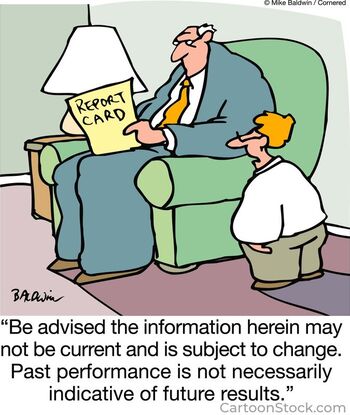

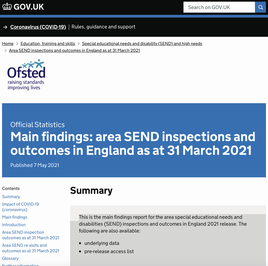



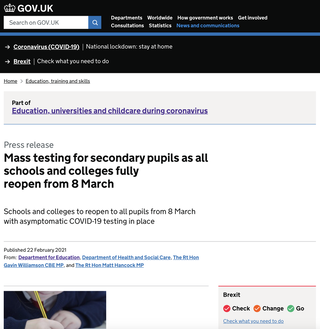
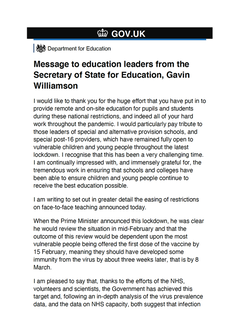



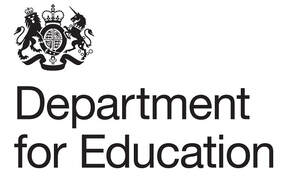
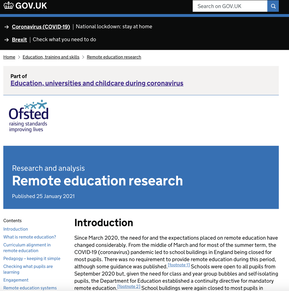



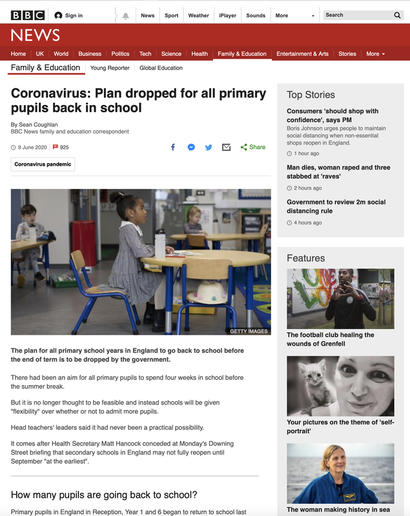
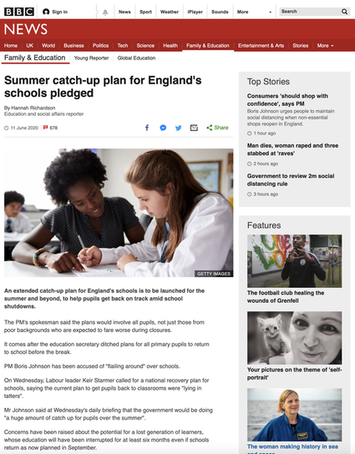
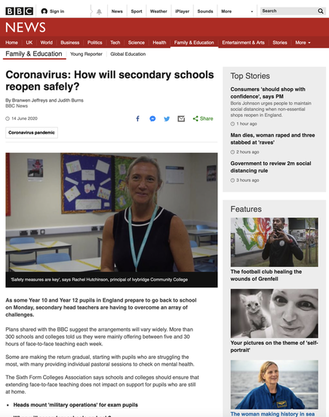
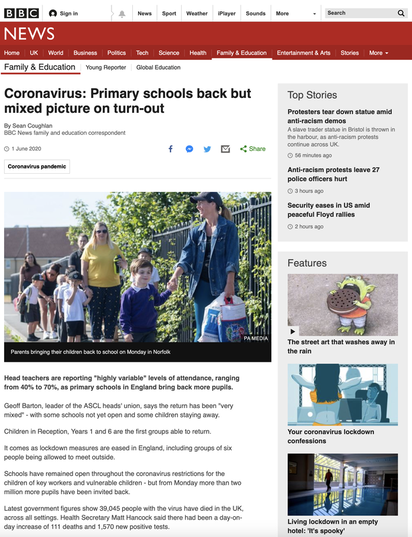
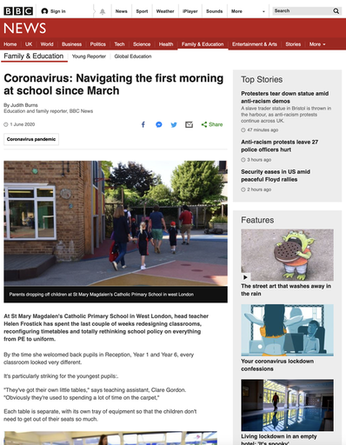
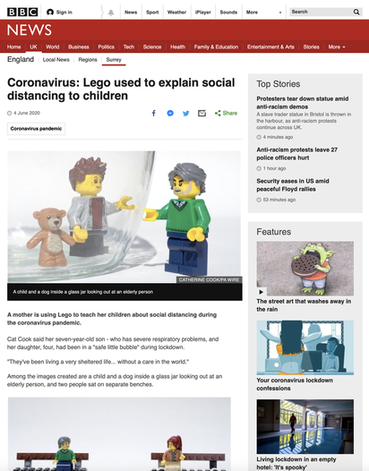
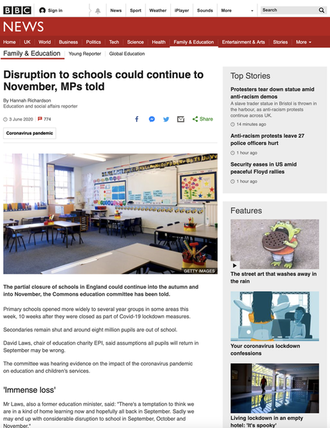
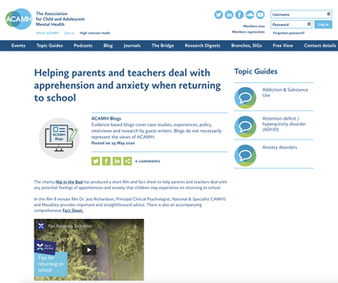
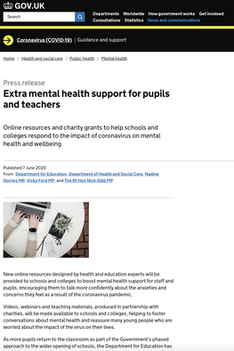
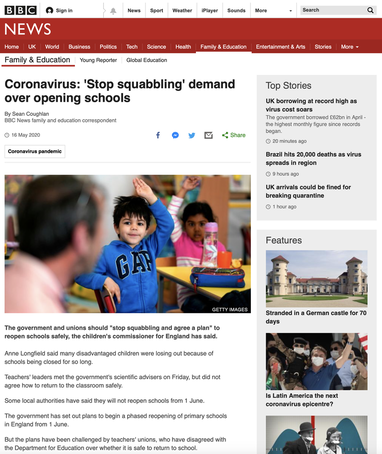
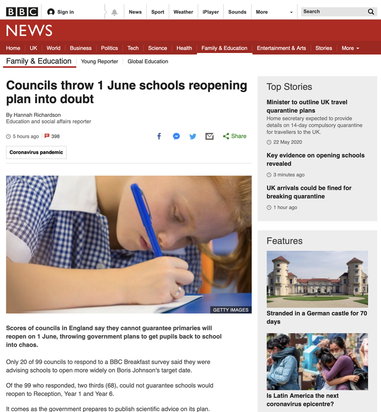
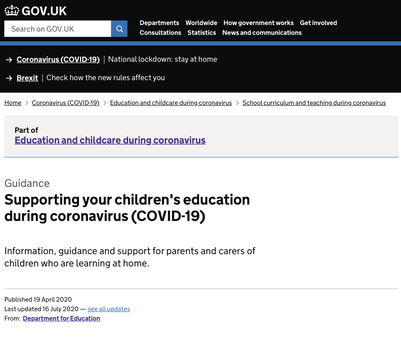
 RSS Feed
RSS Feed







